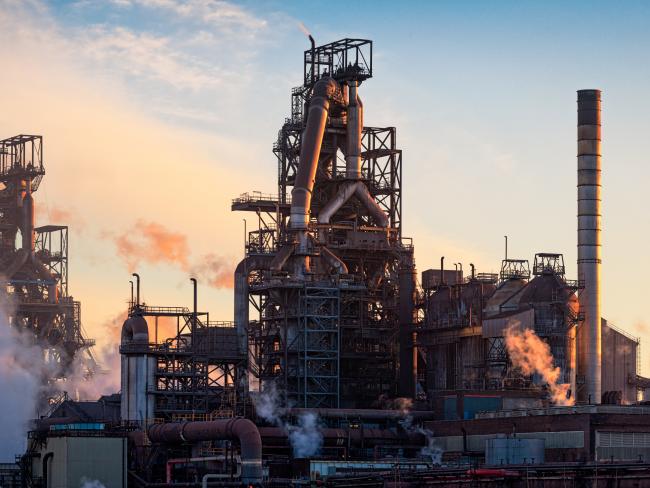The government claims it has rescued Tata Steel. In fact the deal threatens the continued existence of Port Talbot, Britain’s largest steel works. Thousands of skilled jobs are at risk.
Steel is a strategic industry, on which many others depend – rail, construction, vehicles and more. Britain needs security of supply to have control of those industries, which require high quality steel, as do the finishing steel plants.
Net zero policy
The move by the government and Tata Steel to agree a £1.25 billion deal for electric arc furnaces at Port Talbot to replace existing blast furnaces at the cost of 3,000 jobs is driven by net zero policy. Alternatives to electric arc furnaces have not been considered.
The Welsh government response to this deal accepts the same dogma. Julie James, the Wales minister for climate change said, “The investment of course is welcome in the steelworks, but it's a drop in the ocean for what they need for the proper decarbonisation of the steelworks.”
Wrong move
On the other hand, this deal is not welcomed by the workers at Port Talbot, nor by their union, and especially not by those whose jobs are directly threatened. And they believe it is the wrong move for the future of steel in Britain and the industries which depend on the material.
Community, the steelworkers’ trade union, criticised this news. It says that the approach by the government and Tata is narrow-minded and will be damaging for British steelworkers and the wider economy.
“This approach risks Britain’s economic security.”
Roy Rickhuss, general secretary of Community explained, “An Electric Arc Furnace-only approach is short sighted, undermines the integrity of our industry and comes at the expense of our steelworkers. It would make us extremely exposed to the price and availability of steel scrap, and risks Britain’s economic security by making British steelmaking reliant on imports of virgin steel and steel in imported goods”.
Alun Davies, Community national officer, said: “The unions have not agreed any decarbonisation strategy for Port Talbot and Community Union does not support switching to an electric arc furnace model. There must be a full and meaningful consultation on all the options to decarbonise steelmaking and secure the future of every UK plant. Community Union will do everything within its powers to support our members and protect their jobs.”
Issues
The two blast furnaces which create new high quality steel from raw materials will be decommissioned. There are two main issues in replacing them with electric arc furnaces.
Firstly, electric arc furnaces are not currently used for primary production of virgin steel; they mainly recycle scrap steel. Recycled steel will have an impact on all industries that depend on high quality steel. The final product quality for those purposes can’t yet be guaranteed.
Secondly, electric arc furnaces need a sustained and intensive energy supply. Claims that they will run on renewable energy don’t tell the whole picture. Green electricity generation cannot guarantee that. At night and when there is no wind, will the furnaces shut down? And will they trigger power cuts during periods of high demand?
‘Reducing carbon emissions is not a matter of simply switching from blast furnaces to electric arc.’
British Steel, the company that bought Scunthorpe steelworks from Tata in 2016, points out in its low carbon roadmap that reducing carbon emissions is not a matter of simply switching from blast furnaces to electric arc. Building new electric arc furnaces and making them suitable for primary production will take time.
Alternatives
The government says Port Talbot is Britain’s largest single source of emissions. Unions point out that hydrogen-fuelled production and carbon capture technology are low carbon alternatives that can operate at higher temperatures allowing production of higher quality steel.
Neither the government nor Tata Steel has mentioned hydrogen-fuelled production. Work is going on elsewhere to develop it. The Thyssenkrupp Steel plant site at Duisberg in Germany plans to produce climate-neutral steel by using hydrogen in direct reduction. This process emits only water vapour and produces liquid pig iron which “has the usual quality”.

